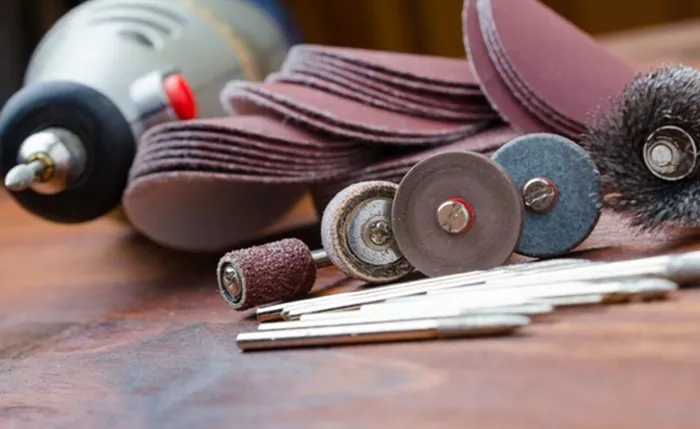If you’re aiming to unlock the full potential of your Dremel rotary tool, the right accessories are essential. This guide provides in-depth information on the top Dremel accessories, their benefits and limitations, how they compare to competitors, specific pricing details, and purchase recommendations.
Product Overview
Dremel accessories are designed to expand the functionality of your rotary tool. These accessories come in various shapes and sizes, each tailored for specific tasks. Key categories include:
Cutting Wheels: Ideal for slicing through materials like metal, plastic, and wood.
Grinding Stones: Perfect for sharpening, grinding, and smoothing surfaces.
Sanding Discs: Used for sanding and smoothing different surfaces.
Polishing Kits: For achieving a high-gloss finish on metals, plastics, and other materials.
Advantages and Disadvantages of Dremel Accessories
Advantages
Versatility: Dremel accessories allow you to perform a wide range of tasks with a single tool. You can switch between cutting, sanding, polishing, and engraving without needing multiple tools.
Precision: Many Dremel accessories are designed for fine detail work. For instance, small engraving bits can help you achieve intricate designs, while polishing pads can give a mirror-like finish.
Ease of Use: Accessories are generally easy to attach and detach. This user-friendly design means you can quickly adapt to different tasks without much hassle.
Disadvantages
Compatibility Issues: Not all accessories fit every Dremel model. For instance, some older or less common Dremel tools may require specific accessories. Always check compatibility before purchasing.
Cost: While Dremel accessories are known for their quality, they can be more expensive compared to generic or off-brand alternatives. High-quality accessories often come with a higher price tag.
Durability: Some accessories, particularly those used for heavy-duty tasks, may wear out faster. For instance, cutting wheels can become dull with use and may need frequent replacement.
Comparison of Dremel Accessories with Competitors
When comparing Dremel accessories to those from competitors like Black+Decker, Bosch, or Rotary Tool, consider the following factors:
Quality: Dremel accessories are known for their durability and precision. They often outperform competitors in terms of consistent performance. However, some competitors offer comparable quality at a lower price.
Variety: Dremel usually provides a broader selection of accessories. Whether you need a specific bit for engraving or a unique sanding disc, Dremel’s range is extensive. Competitors might offer fewer options or less specialized tools.
Price: Dremel accessories can be more expensive, but they often offer better performance and longer life. Competitors may offer more budget-friendly options, but they might not always match Dremel’s high standards.
See also: 10 Best DeWalt Drill Attachments And Accessories
Specific Prices
Here’s a general breakdown of prices for popular Dremel accessories:
Cutting Wheels: $10 to $15 for a pack of 10. These are essential for tasks like cutting metal or plastic.
Grinding Stones: $12 to $20 for a set of 5. Useful for sharpening tools or grinding down surfaces.
Sanding Discs: $8 to $12 for a set of 20. Ideal for smoothing out surfaces or removing material.
Polishing Kits: $15 to $25 depending on the number of pieces. Great for achieving a high-gloss finish on various materials.
Prices may vary depending on the retailer and package size, so it’s advisable to compare prices before purchasing.
Purchase Recommendations
Start with Essentials: If you’re new to Dremel tools, a starter kit that includes basic accessories like cutting wheels, grinding stones, and sanding discs is a smart choice. This will cover most common tasks.
Invest in Quality: For specialized tasks, high-quality accessories are worth the investment. Opt for reputable brands or Dremel’s own accessories to ensure durability and performance.
Check Compatibility: Always verify that the accessories are compatible with your specific Dremel model. Some attachments are designed for specific models or require additional adapters.
FAQs
1. Can I use Dremel accessories with other rotary tools?
Yes, many Dremel accessories are compatible with other rotary tools as long as the shank size and attachment system match. However, always check the specifications of both the accessory and the rotary tool to ensure proper fit and performance.
2. How do I properly maintain my Dremel accessories?
To maintain your Dremel accessories, keep them clean and free of debris. Regularly inspect them for signs of wear or damage. For accessories like cutting wheels or grinding stones, ensure they’re properly aligned and securely attached before use. Replace any worn or damaged accessories to ensure safe and effective operation.
3. Are there any safety precautions I should take when using Dremel accessories?
Yes, always wear safety goggles and gloves to protect yourself from debris and dust. Ensure the tool is turned off and unplugged when changing accessories. Follow the manufacturer’s instructions for each accessory and avoid using accessories beyond their intended purpose.
4. How do I know which Dremel accessories are compatible with my model?
Check the user manual or manufacturer’s website for compatibility information. Dremel accessories usually list compatible models on their packaging or product descriptions. Ensure that the shank size and attachment system of the accessory match your Dremel tool.
5. What’s the difference between Dremel’s brand accessories and third-party accessories?
Dremel’s brand accessories are specifically designed to work with their tools, often ensuring better fit and performance. Third-party accessories can be more cost-effective but may vary in quality and compatibility. If you choose third-party options, verify compatibility and read reviews to ensure they meet your needs and standards.
Conclusion
Maximizing your Dremel tool involves selecting the right accessories to meet your needs. Whether you’re cutting, grinding, sanding, or polishing, having the right attachments can make a significant difference in your projects. By understanding the advantages, disadvantages, and comparisons with competitors, and by making informed purchasing decisions, you’ll enhance your tool’s functionality and achieve superior results in your DIY and craft endeavors.
Related Topics:
-
A Comprehensive Guide To Hilti Anchors: Types, Uses, And Benefits
-
Craftsman Power Tools Under The Microscope: Testing Durability And Efficiency
-
Top Factors In Evaluating Makita Batteries: Performance, Capacity, And Compatibility
-
Truck Bed Drawers: Enhancing Your Truck’s Functionality And Security

